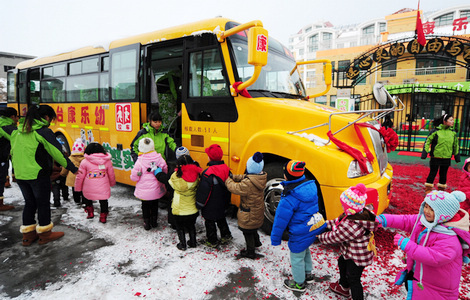Tighter regulations to ensure TCM's safety
Updated: 2011-12-12 07:42
By Shan Juan (China Daily)
|
|||||||||||
BEIJING - China will strengthen the regulation of traditional Chinese medicine (TCM) to ensure its quality and to assist the country's plans to provide universal healthcare.
The initiative in the national drug safety plan approved by the State Council came after TCM scandals, such as where dealers smoked TCM raw materials with sulfur to make them look better. Such scandals aroused public concerns over safety.
In response to those concerns, the production and processing of Chinese herbal medicines will be standardized in the next five years, according to the plan. A system to track these medicines to their origin will also be established.
"Supervision over TCMs, particularly the medicinal materials and decoction by preparing the contents of drugs separately, has always been weak in China, and this might affect the efficacy of drugs and put consumers' health at risk," said Huang Jianyin, deputy secretary-general of the World Federation of Chinese Medicine Societies.
In June, the Hong Kong Department of Health publicized a suspected case of Chinese herbal medicine poisoning involving a 50-year-old local woman, who had taken a self-prepared herbal decoction for easing the symptoms of menopause.
She developed a dry mouth and blurred vision, symptoms indicating anticholinergic poisoning, about half an hour after taking the herbal decoction on June 16, said a release issued by the department.
Investigations found the contaminated herbs were from Guangzhou but the source of the contamination has not yet been determined.
Contamination from materials such as heavy metals, pesticides and aflatoxin residue have been detected in TCM medicines from time to time, Huang said.
Such problems have blocked more than 60 percent of TCM exports from being sent abroad, industry analysis shows.
"The new drug safety plan would help change the situation, and setting standards and testing for certain contaminants such as heavy metals should be prioritized," Huang said.
Xu Yongqian, a division director of the Jiangzhong Pharmaceutical Group, said it tested TCM raw materials for contaminants - eight heavy metals and 180 pesticides - before production.
"The introduction of a process to remove the residues has greatly increased production costs," he said.
Yang Guoqing, who heads the association of schisandra chinensis, a Chinese herbal medicine, in Benxi county, Liaoning province, said such contamination usually occurred during planting and growth due to soil and water pollution.
Overuse of pesticides and intentional adulteration were largely to blame for incidents of contamination, Yang said.
Benxi now has about 300 schisandra chinensis planters with an annual output of more than 5,000 tons, accounting for 10 percent of the national market.
Since 2006, the association has promoted standard planting practices among farmers to prevent contamination. Those practices included banning the use of pesticides and strict controls over the use of fertilizers, Yang said.
Meanwhile, no artificial materials, such as sulfur, are allowed during preliminary processing, he added.
Shang Liancai, a local planter, said that buyers, particularly those from abroad, did the testing and products smoked with sulfur were always removed from the market.
Liu Ce in Liaoning contributed to this story.
Hot Topics
HIV/AIDS, Egypt protest, Thanksgiving, climate change, global economic recovery, home prices, high-speed railways, school bus safety, Libya situation, Weekly photos
Editor's Picks

|

|

|

|

|

|







